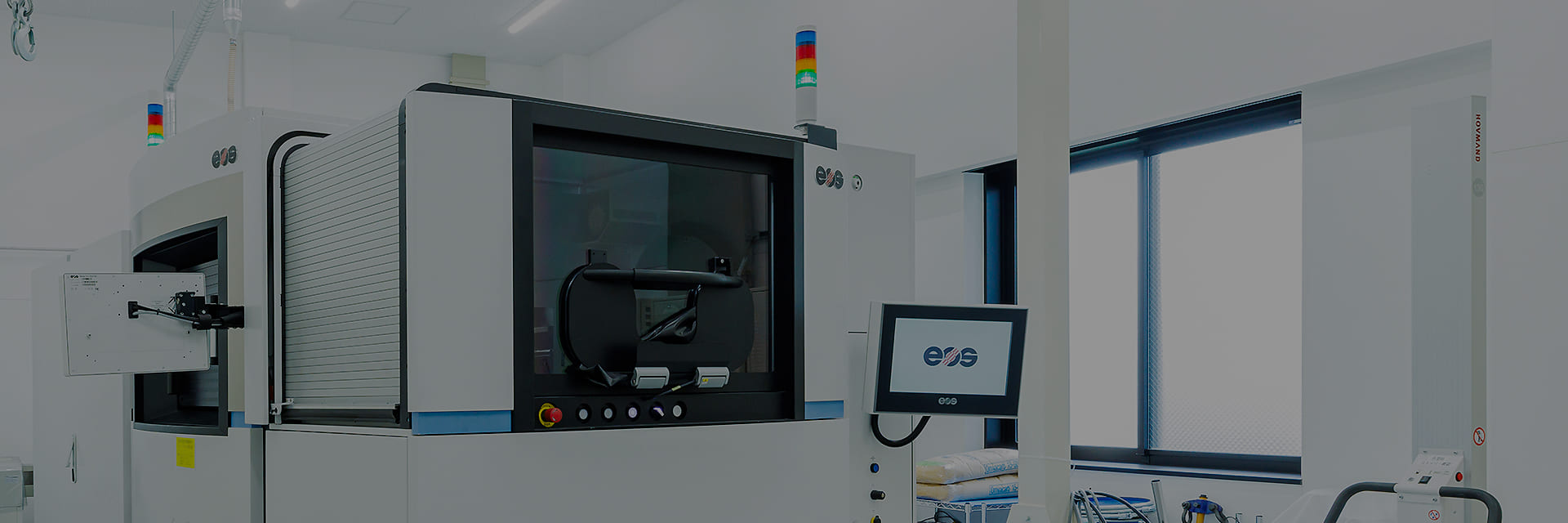
金属3Dプリンターとは
金属3Dプリンターとは
金属3Dプリンター/積層造形(Additive Manufacturing)とは「作れなかったものをカタチにする技術」です。金属3Dプリンターによる製品製造は、対象となる製品・部品の3D CADデータを基に設計図としてスライスデータを作成し、一層毎に金属粉末を溶融・凝固させ、積層して立体物を造形する技術です。

金属3Dプリンターによる製品製造
一層分(約30~100μm)の金属粉末を敷く⇒スライスデータ通りに電子ビーム/レーザービームを照射し、金属粉末を溶融/凝固⇒造形ステージを一層分下げるという動作を繰り返し行う事で造形物を完成させます。

金属3Dプリンターの利点
- 1複雑形状部品・製品の造形ができる
金属3Dプリンターは製品形状の自由度が高く、従来工法(鋳造・鍛造・切削等)では不可能もしくは困難であった複雑形状部品・製品を造形することができます。一層毎に積層し、接合部のない一体成型が実現できるため、製品形状の最適化も可能となり、軽量化にも繋がります。
さらに、一体成型ができる事で従来工法では加工が困難であった金属でも造形が可能になります。
- 2歩留りの向上・加工費の削減ができる
金属3Dプリンターは素材(金属粉末)から直接製品を製造するため、余計な歩留り損を抑えることができます。また、従来工法で必要だった組立や加工についても、金属3Dプリンターでは一工程で完了できるためコスト削減が可能です。さらに、製造工程において金型・鋳型を必要としないため、一品からの製造でもコストを抑えられ、サイズやデザインの調整も容易に行えます。
- 3不要な中間在庫の削減ができる
金属3Dプリンターに必要な材料は金属粉末のみで、必要な設備も金属3Dプリンターだけです。そのため、非常に短い生産ラインでの製造が可能となり、不要な半製品を持つ必要がありません。
金属3Dプリンターで作れるもの
金属3Dプリンターで造形された部品は、航空宇宙分野、医療分野、インフラ産業分野や自動車分野など、さまざまな分野ですでに用いられています。例えば、航空宇宙分野ではロケットエンジン部品やジェットエンジンの燃料噴射ノズルなどの金属部品、医療分野では人工骨インプラントなどです。





